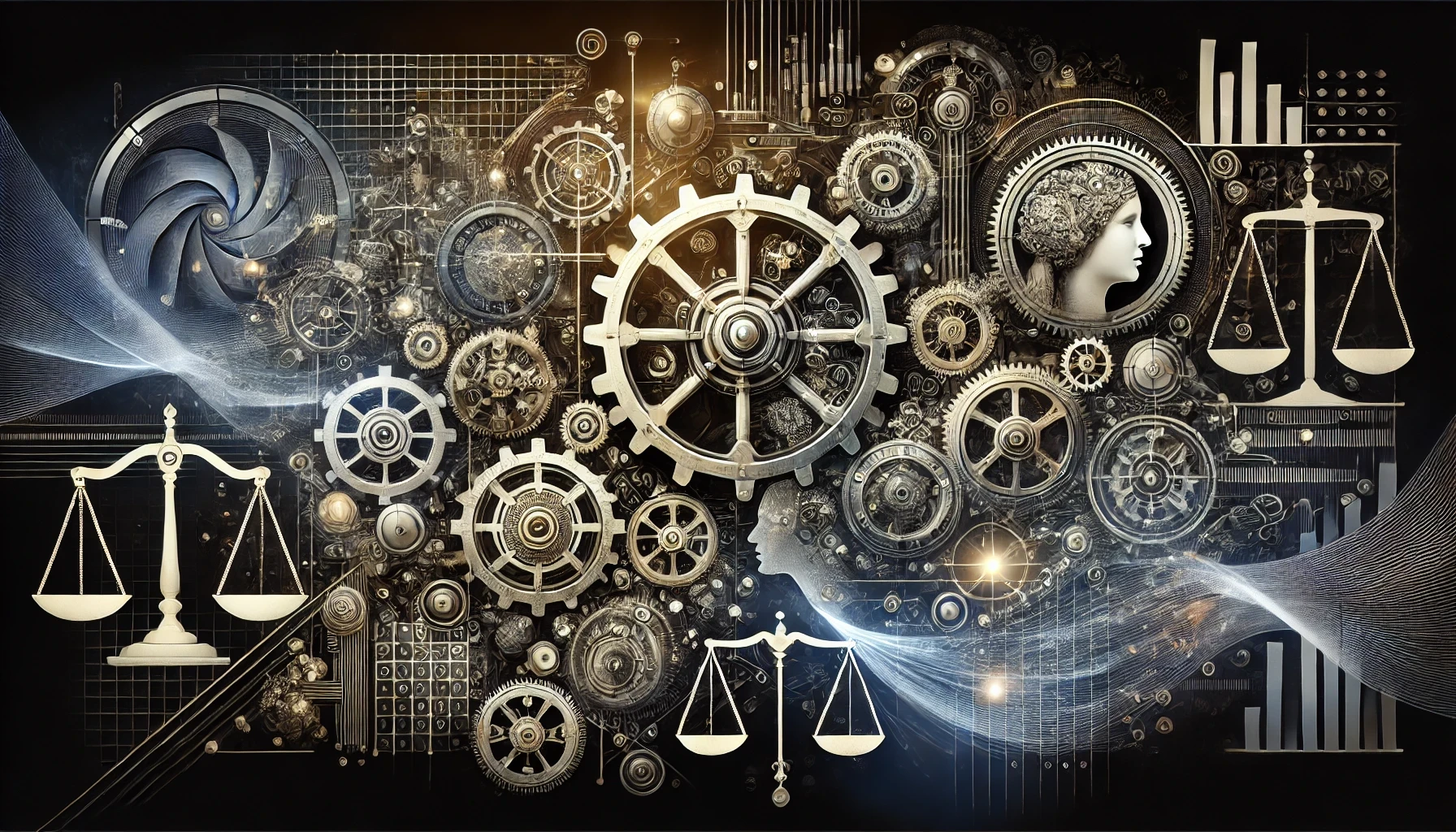Concept of the State

According to the classic definition by V.I. Lenin, “The state is a machine for oppressing one class by another, a machine for keeping other subordinate classes in obedience to one class.” Everything seems clear, simple and understandable here — but let’s still think about the meaning of the definition. Lenin says that the state is a machine. Is this a metaphor emphasizing the simple inanimateness, the mechanical nature of state structures — or is it about something deeper? Any machine, by definition, is a producing mechanism. What does the state machine produce in the course of its activity? Lenin writes that its purpose is “to keep other subordinate classes in obedience to one class.” The obedience of subordinate classes to the ruling class is a social relationship. Therefore, we can say that the state produces certain social relations between the ruling and subordinate classes, in other words, relations of political power.
Now we should say what political power is. Let us consider its elementary manifestation: a policeman stops you on the street, addressing you as a citizen of the state he represents. For what reason does a person obey the policeman’s order? The simplest answer is that he is armed. But such an answer does not explain why people obey unarmed representatives of the authorities — after all, the policeman may not have a gun with him, and he may be quite peaceful in his disposition. It would be more correct to say this: a person stops because the policeman (that is, a living human body placed in a certain set of social relations that gives him the properties of a policeman) has authority — and the weapons and uniform serve as an additional means of maintaining this authority. Once again: in this situation there are two aspects that we can call objective and subjective. The objective aspect is the mutual position of two living human bodies, one of which is dressed in a uniform and armed — and the other has neither. The subjective aspect is how this situation is reflected in the consciousness of both, that is, that one living human body is reflected as a representative of the state endowed with power — and the other — as a citizen obliged to obey it. However, this subjectivity also has a completely objective basis in the form of electrochemical processes occurring simultaneously in the brain of both the citizen and the policeman. Thus, power is realized in the interaction of human bodies placed in certain social relations that have an objective and subjective expression. Therefore, the task of the state is to produce these relations in their objective and subjective manifestations. In short, the state, in order to keep the oppressed classes in subjection, produces both power in its objective form, as dictatorship, which Lenin writes about in detail in "The State and Revolution", expressed actually in the form of buildings, weapons, positions and actions of human bodies, etc., and in its subjective form, as hegemony, which Antonio Gramsci writes about in the "Prison Notebooks", expressed virtually, in the forms of the external world reflected in consciousness, whether they are recorded in the neural network of the human brain, or on paper, or on hdd, or on the screens, etc. But since both forms of power are constantly passing into each other, we are not talking about two different powers, but about one power, in which we distinguish two moments, but which has a single essence: rescription, that is, the rewriting of actual and virtual forms of the material world in accordance with the interests of the ruling class.
Why precisely the rewriting of forms? The whole point is that from the point of view of dialectical materialism, behind all the diversity of the material objects there is a single substance — matter, which is called a substance because its essence is existence. In addition to essence — Latin essentia, in materialistic ontology there is the concept of subsistance (Latin subsistencia), that is, that which determines, that is, limits the being of a substance. But since the essence of a substance is being, given in it absolutely — then absolute being, as Hegel clearly showed in the first chapters of the “Science of Logic”, can be limited only by absolute nothingness. Further, he shows how mutual determination arises from the interaction of being and nothingness in a substance, that is, matter takes on form, so that form is an attribute, or an immanent property of matter. The fact that a substance is always identical to itself is a scientifically proven fact, since it is confirmed experimentally and substantiated theoretically under the general name of “conservation laws”. Matter changes only forms: substance, field, energy, space, animal or human bodies, society with all its institutions — all these are just different forms that matter takes in its movement. And since the change of forms is a superficial process that does not affect the essence of matter in any way — then it is quite correct to use the word “rewriting”, or in Latin “rescription” (rescriptia) — since when writing, only the forms and signs on the surface of the paper change, while the paper itself remains invulnerable.
The rescription of forms dialectically combines the concepts of production and thinking. Indeed: rescription, on the one hand, appears before us as a process of producing new forms of matter — and on the other hand, as a process of their mutual reflection. Therefore, all processes in matter have the form of logical operations, and can be described in terms of dialectical logic. All these processes proceed in the direction of thermodynamic equilibrium, are completely forced, and their nature is determined by the contradictions of interacting forms.
The state arises at that stage of society when the latter, under the influence of growing productive forces, splits into antagonistic classes, and ensures the self-reproduction of society (the production base, the ideological superstructure, human bodies and social relations between them all) with class contradictions remaining — about which Engels writes in detail in "The Origin of the Family, Private Property and the State". For this reason, a number of social institutions arise in the work of which the action of the state is objectively realized, even if formally they are private. Church, family, school, university, culture, sports, army, clinic, law, media, private property itself, etc. — all of them are inscribed in the processes of production of society as a society of the ruling class and the mass of the population subordinate to it. The masses precisely because the state is possible only as long as the oppressed class is not organized as a class-for-itself, objectively and subjectively, but as a class-for-another, that is, for the bourgeoisie in this case. The listed rescriptive state apparatuses (Althusser divides them into repressive and ideological in accordance with which aspect of power predominates in them, objective or subjective, respectively) consolidate power relations according to the stimulus-reaction principle, achieving the necessary reactions both from representatives of the state and from the oppressed classes. In this respect, a person living in the pre-communist era differs little from the notorious Pavlov’s dog: from birth he is taught obedience through a system of rewards and punishments, that is, positive and negative reinforcement. When these reactions are firmly assimilated by him, he is called "law-abiding" or "responsible", and the ideas of right and wrong that he has assimilated are called "conscience". The word "responsibility" itself is curious: it means the possibility of holding an abstract person accountable, forced to bear the consequences of his actions. In this regard, Althusser is certainly right when he says in his article “Ideology and Ideological State Apparatuses” that subjects are not born, but become under the influence of the rescriptive apparatuses of state power. From this phenomenon arises the superstitious idea of the so-called “free will”, supposedly inherent in the human organism. At the root of this prejudice, however, lies the real relations of class antagonism, which determine the production of human bodies as responsible for their actions before the authorities of the ruling class. The responsibility of a child to his parents, a student to his teacher, a soldier to his officer, a citizen to a policeman has its basis in the economic dependence of the hired worker on the capitalist who exploits his labor. Responsibility is only superficially reasonable — since behind the outwardly rational relations there are irrational relations of exploitation. Every stimulus, every ideological construct presented in a class society as something bright, kind, reasonable and sublime turns out to be a bugbear of the impersonal forces of class domination, which rewrite the consciousness of the masses in the interests of the bourgeoisie. The euphoria of patriots, “defenders of the family,” “traditional values,” “faith,” etc. turns out to be nothing more than an ideological intoxication that the state machine dutifully produces.
Communism (RU), being a higher form of organization of social labor, achieves such a degree of coordination of the processes of thinking and production that it allows the destruction of old class contradictions, religious and other prejudices, private property, family and the state. And the state of the working class is a self-socializing, self-disassembling state, dissolving in the processes of consisting production.
